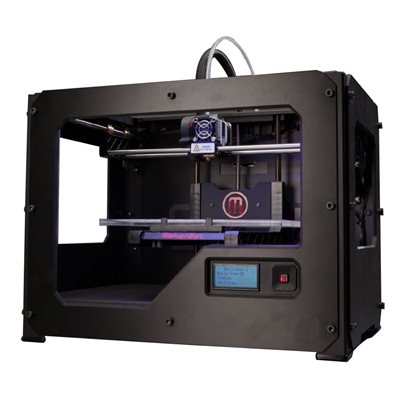The Maker Movement Helps Transform Our Public Libraries
The small town of Bethlehem, New York purchased a 3D printer and started teaching classes at its public library recently—jumpstarting the community's knowledge of advanced manufacturing and building upon a new way of doing things in a world where physical bookstores are dissappearing.
It's true. Public libraries are reinventing themselves. Today they are becoming less of a place that hosts physical books and more of a center where people collaborate, commune, and learn new things.
Check out their program to help kids overcome their shyness when reading aloud to others by bringing dogs in to listen!
 Bethlehem NY, Public Library
Bethlehem NY, Public Library
This year, I reviewed the Makerbot Replicator 2X and the Printerbot Simple Kit. And around that time, I heard that the Bethlehem Public Library was looking for volunteers to provide informal demonstrations and training to its patrons on their new Makerbot 2 and the Makerbot digitizer. So, I signed up to give back and help out.
 Makerbot 2 at Public Library
Makerbot 2 at Public Library
The library is unfolding this educational program for the community by first training volunteers to teach. Volunteers will learn how to guide others on how to use and operate the machinery. Then, members from the community will sign up to complete the program. Those who do will recieve a certification in digital and physical form (a custom 3D printed token).
During the volunteer orientation program, I learned that several open source tools are installed in the computer driving the 3D printer: Blender, FreeCAD, and OpenSCAD.
 Makerbot digitizer
Makerbot digitizer
Those with a certification from the library wil then be able to reserve the Makerbot 2 and the Makerbot digitizer for up to 2 hours at any given time to produce their own projects.
In order to give back, to help the library maintain a supply of filament, those community members will pay the library based on the weight of the project. This approach is not unlike the method used by many online 3D printing services, like shapeways, and I think makes the 3D printing program sustainable.
Three cheers for Bethlehem Public Library, who is providing an exemplary effort to educate its community by democratizing this digital technology!
| This article was written by Luis Ibáñez and originally published in Opensource.com. It is being republished by Open Health News under the terms of the Creative Commons Attribution-ShareAlike 4.0 International License. The original copy of the article can be found here. Image credits Opensource.com. |
- Tags:
- 3D printer
- advanced manufacturing
- Bethlehem
- Bethlehem Public Library
- Blender
- custom 3D printed token
- FreeCAD
- libraries as collaboration centers
- Luis Ibáñez
- maker movement
- Makerbot digitizer
- Makerbot Replicator 2X
- online 3D printing services
- OpenSCAD
- physical bookstores
- Printerbot Simple Kit
- public libraries
- Shapeways
- State of New York
- Login to post comments